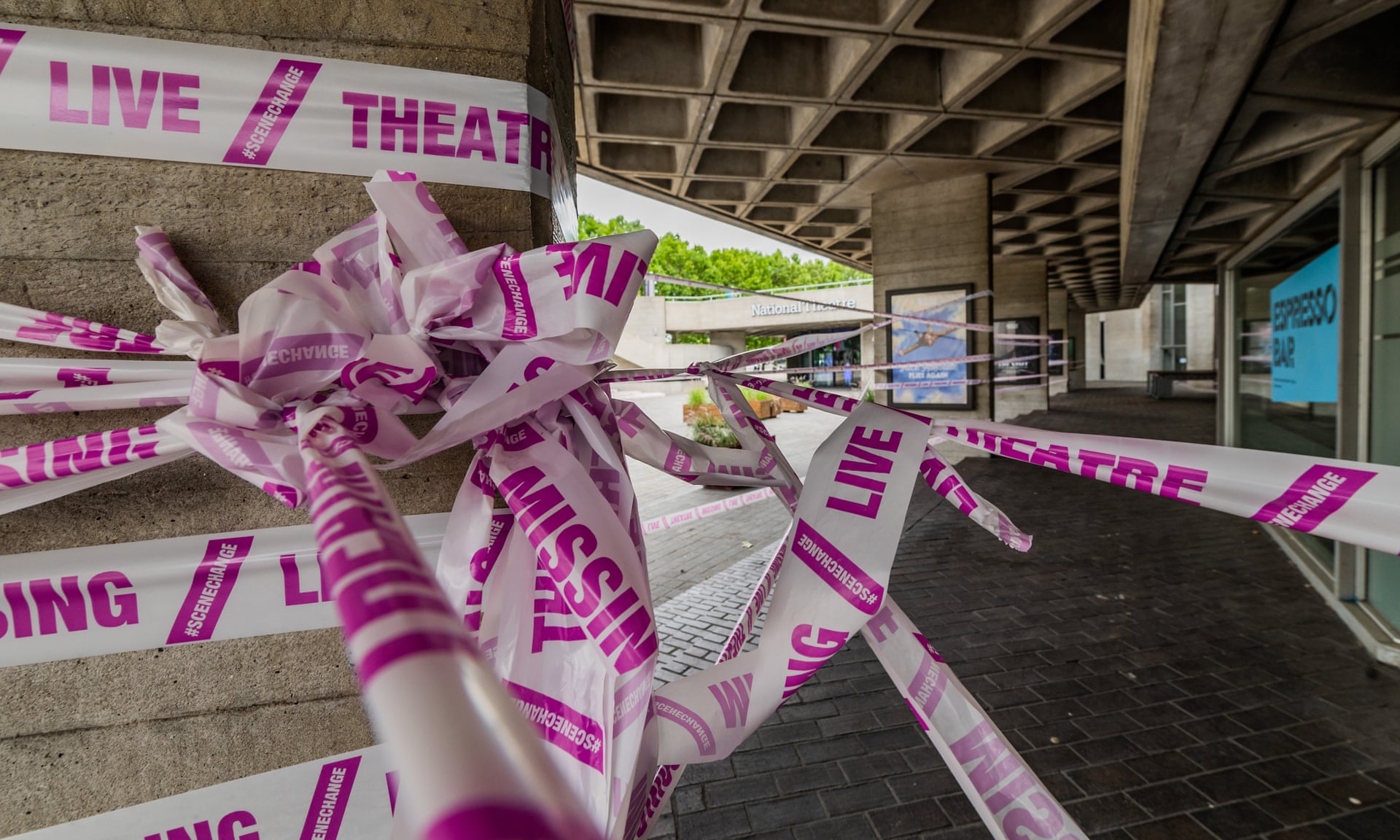Plan to open England’s theatres with reduced capacity ‘not viable’
Theatres and venues in England will be able to host socially distanced performances and gigs from 1 August under new government plans, but the move has been criticised for not being economically viable for most venues.
The culture secretary, Oliver Dowden, said the plan, which is the fourth stage of the government’s five-step plan for reopening arts venues, was a “welcome step in the path to a return to normal”. But industry figures said until stage five begins, when performances are allowed indoors and outdoors with “fuller audiences”, theatres and music venues would not be able to reopen and survive financially.
“From August indoor theatres, music venues and performance spaces will safely welcome audiences back across the country,” Dowden said. “This is a welcome step on the path to a return to normal and, coupled with our £1.57bn rescue package, will help secure the future of this important sector.”

Konzerthaus wird nach Komponist Ennio Morricone benannt
Die Stadt Rom hat das Auditorium Parco della Musica nach dem kürzlich verstorbenen Komponisten Ennio Morricone benannt. In dem 2002 von Architekt Renzo Piano entworfenen Haus ist das Orchester des Konservatoriums Santa Cecilia zu Hause. Zur Umbenennung des Hauses gab es im Rathaus eine Zeremonie, bei der der Sohn des Verstorbenen, Andrea Morricone, ein Orchester dirigierte. Ennio Morricone war mit der Musik für Western wie “Spiel mir das Lied vom Tod” (1968) bekannt geworden, zwei seiner letzten Werke waren die Musiken für Quentin Tarantinos “Django Unchained” (2012) und “The Hateful Eight” (2015). Er starb Anfang Juli 2020 im Alter von 91 Jahren.

Concert house named after composer Ennio Morricone
The City of Rome has named the Auditorium Parco della Musica after the recently deceased composer Ennio Morricone. The building, designed in 2002 by architect Renzo Piano, is home to the Orchestra of the Santa Cecilia Conservatory. To rename the house, a ceremony was held in the Town Hall during which the son of the deceased, Andrea Morricone, conducted an orchestra. Ennio Morricone had become known with music for westerns such as “Play Me the Song of Death” (1968), two of his last works were the music for Quentin Tarantino’s “Django Unchained” (2012) and “The Hateful Eight” (2015). He died in early July 2020 at the age of 91.
Mort de David Jisse, compositeur et homme de radio
Compositeur, auteur, interprète, homme de radio, fondateur de label et de festival, pédagogue… par où commencer ? Par la musique, car c’est à elle que David Jisse a consacré ses forces. Figure indissociable de la création musicale, il s’est éteint d’un cancer fulgurant à l’âge de 74 ans. France Musique lui rendra hommage dès lundi 20 juillet sur son antenne.
Les auditeurs de France Musique se souviennent particulièrement du trio qu’il formait avec Christian Zanesi et Christophe Bourseiller dans l’émission Electromania, ainsi que de l’émission Electrain de nuit, avec François Bonnet. C’est sur France Culture que David Jisse fit ses premières armes, pour le programme musical, avant de devenir la voix des émissions Euphoria, Libre-Cour, ou encore Un poco agitato, avec pour credo la transmission et la sensibilisation à la musique.

Death of David Jisse, composer and radio man
Composer, author, performer, radio man, label and festival founder, educator… where to start? With music, because it is to music that David Jisse has devoted his strength. An inseparable figure in musical creation, he died of a dazzling cancer at the age of 74. France Musique will pay tribute to him on Monday 20 July on its airwaves.
France Musique listeners will particularly remember the trio he formed with Christian Zanesi and Christophe Bourseiller on the show Electromania, as well as the show Electrain de nuit, with François Bonnet. It was on France Culture that David Jisse made his debut, for the music programme, before becoming the voice of the programmes Euphoria, Libre-Cour, and Un poco agitato, with the credo of transmitting and raising awareness of music.
The Met Opera Tries to Find Paying Customers in a Pandemic
After the coronavirus pandemic forced concert halls and opera houses to close this spring, online performances proliferated. The Metropolitan Opera began streaming nightly operas from its extensive video archive, and in April it presented an At-Home Gala, broadcast over smartphones from the homes of singers around the world.
The classical music and opera offerings this spring and summer have mostly been free — and tremendously gratifying. But as cancellations continue into the fall, and beyond, organizations have worried that listeners will start taking free performances for granted.
So the Met is testing whether audiences will pay for digital content with a series of recitals by some of its biggest stars; the first, on Saturday, featured the tenor Jonas Kaufmann. Tickets are $20, roughly the price of the Met’s Live in HD movie-theater transmissions.

 BACK
BACK